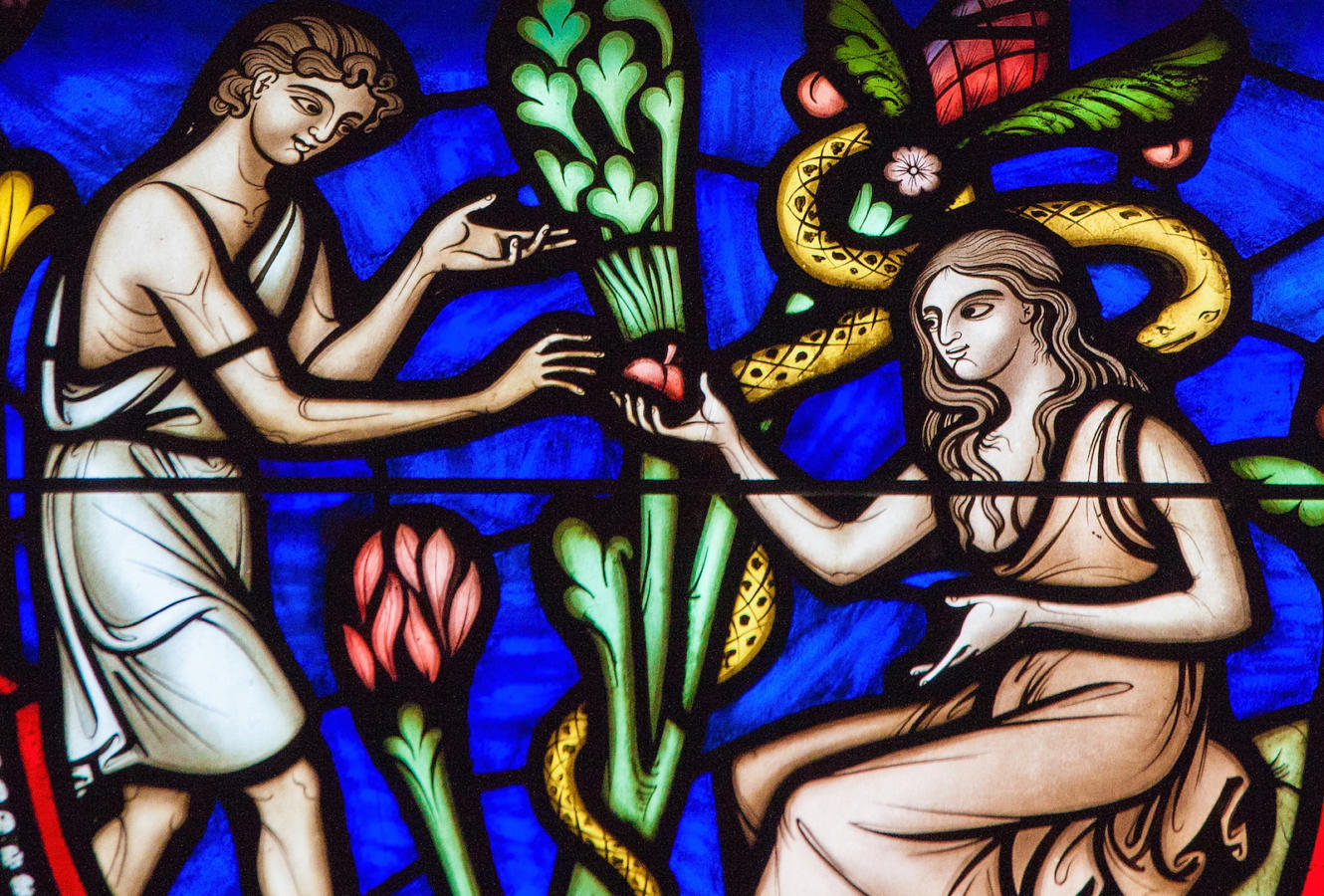Adam was the first human being and the progenitor of the human race. The first chapter of Genesis states that God made man in the sixth day of the Creation, fashioning him in His own image and giving him dominion over the rest of creation. The etymology of the word Adam connects it with Adamah, “ground or soil,” and with Adom, “red.” This suggests that Adam was formed from red soil or clay.
The second chapter of Genesis tells the creation of man in more detail. God created man from the dust of the ground and breathed into his nostrils the breath of life. He placed him in the Garden of Eden to cultivate it and keep it. God told the man that he could eat from every tree in the garden, except from the tree of the knowledge of good and evil, under penalty of death.
God brought all the animals and birds to Adam, who gave them their respective names, but Adam could not find among the animals a suitable helpmate. God then put the man to sleep, extracted one of his ribs, and fashioned with it the first woman, whom Adam called Eve because she would be the mother of all the living.
The man and the woman were naked and felt no shame until the serpent convinced the woman to eat the fruit of the forbidden tree. After Eve shared the fruit with Adam, the couple became aware of their nakedness. They covered themselves with fig leaves and hid from God in embarrassment. God asked Adam (Genesis 3:11): “Who told you that you were naked? Did you eat of the tree from which I had forbidden you to eat?”

Help us keep Jewish knowledge accessible to millions of people around the world.
Your donation to My Jewish Learning fuels endless journeys of Jewish discovery. With your help, My Jewish Learning can continue to provide nonstop opportunities for learning, connection and growth.
Adam blamed Eve, and Eve blamed the serpent. As punishment for their transgression, God condemned the serpent to crawl on its belly and eat dust. He told the woman that she would suffer pain in childbirth, would crave for her husband, and be subject to him.
To the man, God said, “Because you did as your wife said and ate of the tree about which I commanded you, ‘You shall not eat of it,’ Cursed be the ground because of you; by toil shall you eat of it. All the days of your life: Thorns and thistles shall it sprout for you. But your food shall be the grasses of the field; by the sweat of your brow shall you get bread to eat, until you return to the ground–for from it you were taken. For dust you are, and to dust you shall return (Genesis 3:17–19).”
God then made garments of skin and clothed Adam and Eve. To prevent them from eating the fruit of the tree of life, thus becoming immortal, God expelled them from the Garden of Eden. After being driven out of the Garden of Eden, Eve conceived and gave birth to Cain and, later, to Abel. After the death of Abel, who was murdered by his jealous brother, Eve gave birth to her third son, Seth when Adam was 130 years old.
There is no further mention of Eve in the Bible, and it is not known how old she was when she died. Though Adam lived on for many years, dying at the age of 930, the Bible gives no account of how he adapted himself to life outside the Garden of Eden, except to mention that he fathered sons and daughters.
Reprinted with permission from Who’s Who in the Jewish Bible (The Jewish Publication Society).
Moshe
Pronounced: moe-SHEH, Origin: Hebrew, Moses, whom God chooses to lead the Jews out of Egypt.

Help us keep Jewish knowledge accessible to millions of people around the world.
Your donation to My Jewish Learning fuels endless journeys of Jewish discovery. With your help, My Jewish Learning can continue to provide nonstop opportunities for learning, connection and growth.



